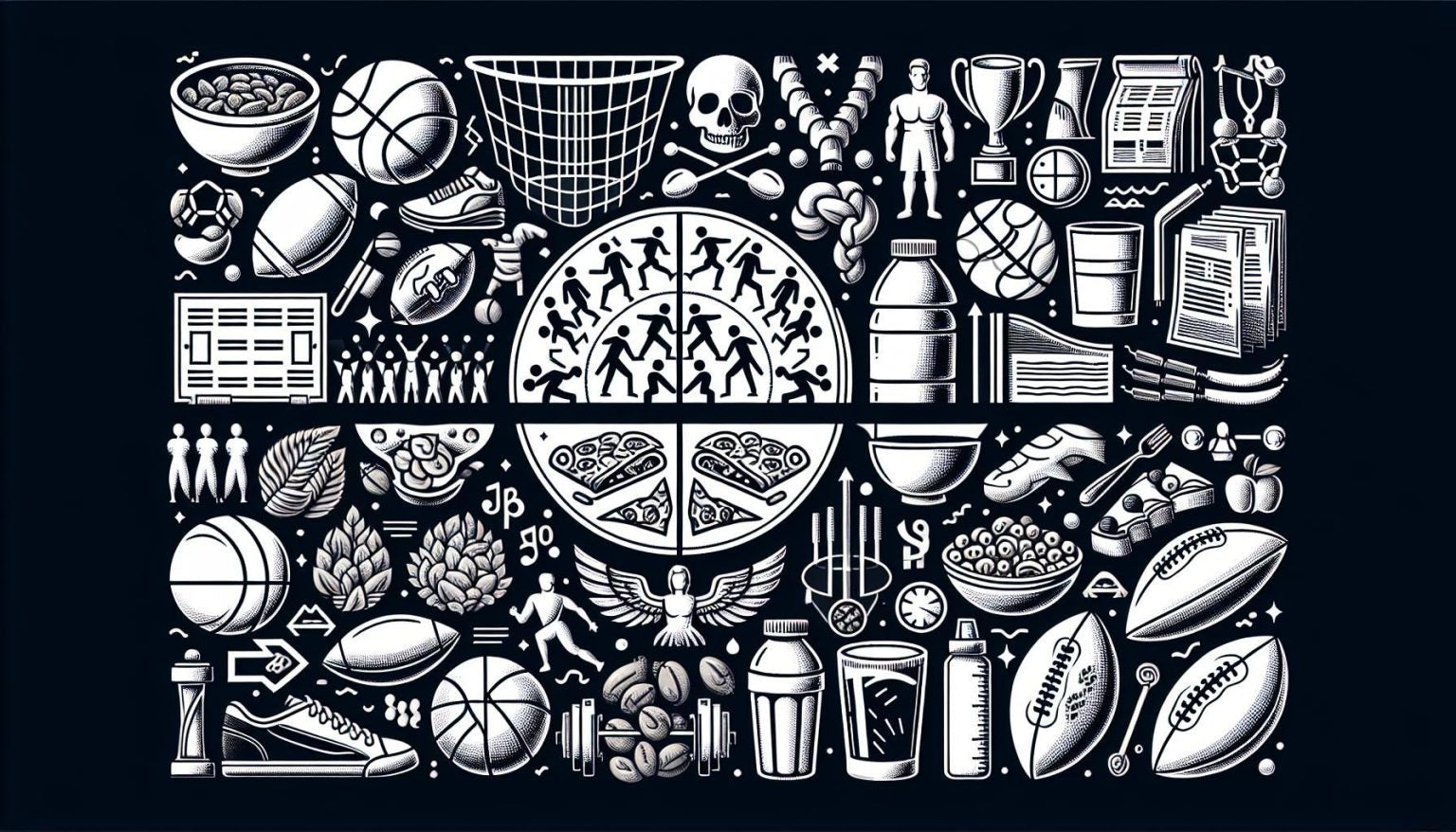In the dynamic sphere of athletics and fitness, misinformation is just as pervasive as the latest fad diet. One of the hot topics mired in complexity is definitely “Nutritional Myths and Realities in Sports”. The secret to exceptional sporting performance is often attributed to sophisticated training regimens, intrinsic talent, and of course, the right dietary plan. Rather than letting rumors and falsehoods cloud our judgment, let’s dive into the facts by unraveling the truth about vital aspects such as “Hydration Myths and Facts”, “The Truth About Carbs and Athletic Performance” and “Protein Timing for Optimal Muscle Recovery.”
This post will navigate through an informed analysis, debunk myths, establish realities, and ultimately provide a reliable guide to the complex nutritional requirements for athletes. Strap in and get ready to overhaul your understanding of sports nutrition.
Myth and Reality – Dehydration Begets Poor Performance
The common belief that not staying optimally hydrated during sports activities can severely impede performance is not entirely a myth. Indeed, dehydration can lead to muscle cramping, fatigue, and even loss of coordination. However, it isn’t necessary to abide by the ‘8 glasses a day’ rule rigidly, as hydration needs vary by individual and depend on numerous factors, including intensity of exercise and environmental conditions.
The Balance of Hydration
While hydration is vital, overconsumption of water can also lead to hyponatremia, a potentially life-threatening condition. So, drink just enough to replace the fluids lost through sweat.
Myth and Reality – Carbs Are The Enemy
The myth that carbohydrates should be stripped from an athlete’s diet to optimize performance can compromise athletic ability and overall health. Carbohydrates are the main energy source for high-intensity training, providing fuel for muscles and ensuring peak performance.
The Silent Role of Carbohydrates
However, moderation is the key here. Rather than eliminating carbs, athletes should focus on the type and timing of carb intake, favoring complex, fiber-rich carbs and timing consumption around workout schedules.
Myth and Reality – Protein Timing for Muscle Recovery
The common wisdom of consuming protein immediately after a workout for optimal muscle repair–the ‘anabolic window’ theory–is not entirely accurate. While protein is crucial for muscle repair and growth, recent research indicates that protein can be consumed several hours post-workout with similar effect.
Beyond the Anabolic Window
This doesn’t diminish the value of protein but places less stress on timing. A consistent intake of protein throughout the day seems more beneficial for muscle recovery and growth.
Myth and Reality – Supplements Enhance Performance
While there is a place for supplements in an athlete’s diet, relying on them as the primary source of nutrition or a performance booster is a misstep. No supplement can replace the intricate balance of nutrients that whole foods provide.
The Whole Truth About Supplements
Supplements should be exactly that–a supplement to a well-rounded, nutrient-dense diet, not a replacement. Athletes should prioritize food first, with supplements used judiciously as per individual nutritional needs or deficiencies.
Myth and Reality – Fasted Training Burns More Fat
The concept that training on an empty stomach increases fat burning is a common belief, but the reality is more complex. While fasted training may increase fat oxidation, this doesn’t necessarily translate into overall greater fat or weight loss.
The Fasted Fallacy
Training in a fasted state might suit some, but for others, it can lead to reduced intensity and fatigue. It’s essential to experiment and see what works best for individual goals and energy needs.
Myth and Reality – Athletes Need a Special Diet
While athletes may require more energy and specific nutrients than sedentary individuals, the fundamental principles of a balanced diet remain the same. Consuming a wide variety of nutrient-dense foods should be the primary focus.
The Special Diet Myth
Every nutrient has its own role in bodily functions. A specialized diet isn’t the answer, but balancing nutrients according to individual needs and exercise intensities is what provides optimal results.
Conclusion
The world of “Nutritional Myths and Realities in Sports” is chock-full of contradictory information. By debunking these myths and further understanding the importance of a balanced dietary approach for athletes, we can shed light on healthier ways to enhance performance. What emerges is the realization that a one-size-fits-all strategy is ineffective. Instead, athletes should cultivate an individualized approach to diet and nutrition, one that meets their specific goals, preferences, and needs.
Frequently Asked Questions – FAQs
1. What are some common sports nutrition myths?
Some common sports nutrition myths include beliefs such as protein should be consumed immediately post-workout, carbs are the enemy, and fasted training burns more fat.
2. Is it true that all athletes need a special diet?
No, it isn’t. While athletes may have specific nutritional needs due to their intense activity levels, the basic principles of a balanced, nutrient-dense diet apply to them, just like everyone else.
3. How important are supplements in sports nutrition?
Supplements can play a role in an athlete’s nutrition strategy, but they should not replace whole foods or be relied upon as the primary nutrition source.
4. Is there a perfect diet for athletic performance?
No. Nutrition needs are highly individual, and what works best depends on an athlete’s specific goals, restrictions, personal preferences, and overall health.
5. Do athletes need to stay continuously hydrated?
While staying adequately hydrated is important, too much consumption can lead to hyponatremia. The hydration needs depend on the individual, kind of sport, intensity, and environmental conditions.










